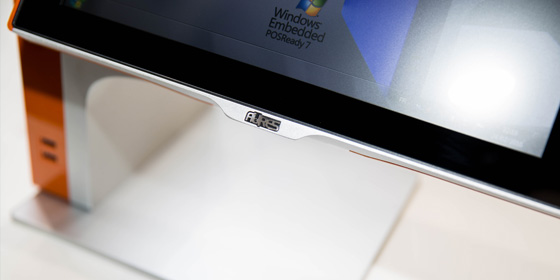Artificial Intelligence (AI) is rapidly becoming a mainstream technology across retail.. Underlining this, a new report reveals how the overwhelming majority of retailers are planning to step up their investments in AI over the next year, having seen a range of benefits already across front-of-store and back office operations.
However, the same report – How AI Powers Retail Growth by industry publication Retail Dive – also reveals something fascinating about the role of existing infrastructure in AI adoption. More than half of the industry figures surveyed for the report said they planned to invest in more powerful processing capabilities to handle AI.
For physical retailers, upgrading your processing hardware means upgrading your POS.
How AI is making a difference in retail
The benefits of AI in retail are being felt across a large and growing number of use cases. The most popular front-of-store and customer-facing applications for AI include personalising the shopping experience (61%), customer service (55%) and checkout and payments (41%). From these, retailers are seeing AI help them with better targeting (60%), faster responses to customer concerns (54%) and faster checkout processes (51%).
The most common back office uses for AI in retail include inventory management (68%), supply chain optimization (63%) and business performance monitoring (43%). The benefits these use cases bring include fewer stockouts and overstocks (61%), increased operational efficiency (46%) and reduced operating costs (37%).
With such a range of benefits, it’s no surprise that 79% of retail leaders surveyed are planning to increase their investments in the technology this year. Specific areas where they are looking to invest cover a wide range, from improving in-store analytics and predictive maintenance for equipment, to introducing dynamic pricing and personalised loyalty schemes.
Preparing for AI
It’s interesting that the majority of retailers are now looking at additional investments in AI in terms of hardware and infrastructure upgrades. This suggests an increasing level of maturity in understanding how AI works, and therefore how to get the most from it. Previously, there’s been a tendency to view AI purely as a plug-and-play software solution.
But like all software, AI applications have to be run on a physical machine somewhere. And they create sizeable processing loads. The more sophisticated the algorithm and the more data it crunches, the bigger that load is. Organisations looking to run multiple advanced AI tools to deliver multiple benefits need enough processing power.
You can run AI software in the cloud, of course, and get all the benefits of enormous, scalable data centre resources. However, there are benefits to running AI tools at least in part on local machines. Especially when large data loads are involved, transferring data back and forth to a distant data centre creates lag and slows applications down. If you want AI to run and optimise processes in real time – a prized part of AI’s capabilities in areas like managing checkouts and customer service, or personalising experiences, or inventory management – running AI locally ensures faster speeds.
This is known as edge AI, as in running applications on machines at the network edge. And this is where POS can take on an important new role in retail as ready-made edge devices for AI. But for your POS machines to do that job, they have to have sufficient compute capabilities.
If you’d like to learn more, why not get in touch with Advantech-AURES to discuss upgrading your POS system ready to meet your AI ambitions.




